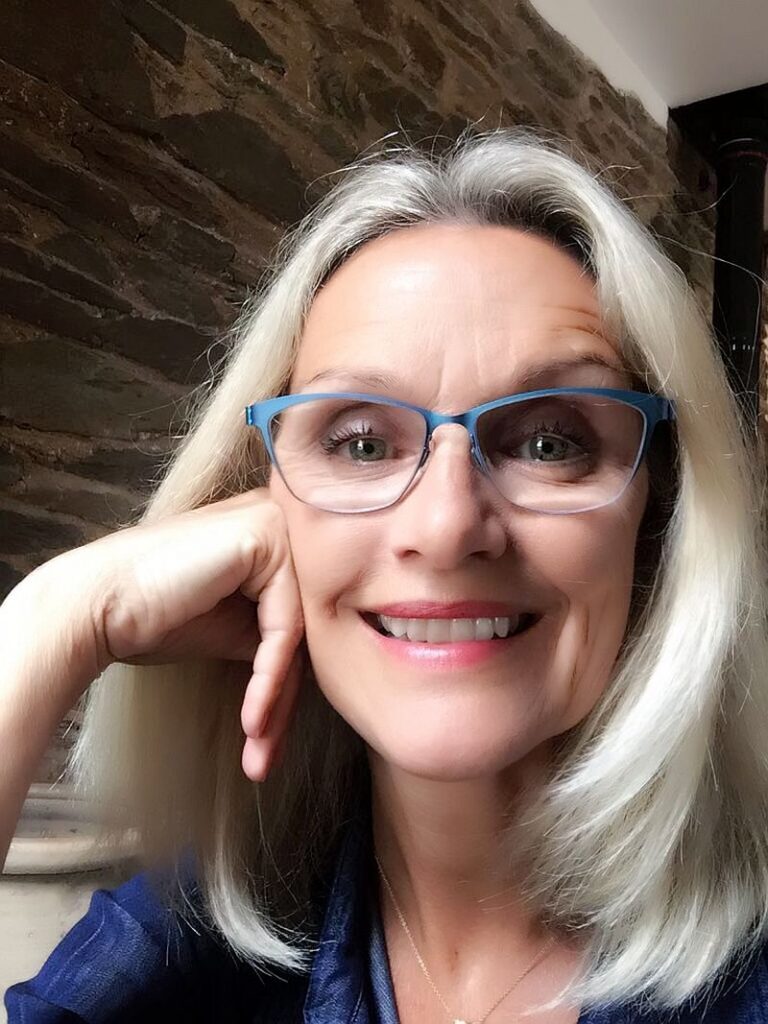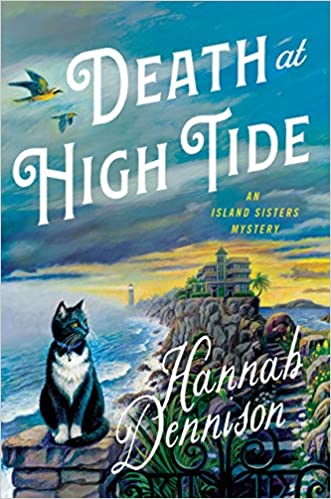
Alan’s novel about the AIDS epidemic, As If Death Summoned, was released by Amble Press, an imprint of Bywater Books, on World AIDS Day, December 1, 2020. It was inspired by his experiences in Australia and working at Cascade AIDS Project in Portland, Oregon, from 1993 to 1999.
Previously, Alan has written The Legacy of Emily Hargraves (2007) a paranormal mystery, Tales of Tokyo (2010) a quest novel set in modern Japan, and The Unforgiven (2012) a dark psychological mystery about the relationship between memory and guilt.
Alan coordinates the monthly WordFest events (now on Zoom,) hosts KLTV’s Book Chat program, and reviews books for the Columbia River Reader.

About the Book
In 1936, a man was caught in a blizzard on the Bogong High Plains of Australia. Found unconscious by a search party, he was taken to the nearest township where an old aborigine woman made the cryptic comment, “They brought back only his body.” He died soon after. In the decades since, there have been reports of a lone figure seen wandering over the heath lands. When approached, the man vanishes and no trace of him can be found.
Almost sixty years later, a young American returns from Australia, exhausted after ten years of being on the front lines of the AIDS epidemic and haunted by dreams of the Bogong High Plains. He, too, is lost in a kind of blizzard that has already claimed thirty-one friends and he struggles to recall a time when life was about more than death.
Plunging back into the heart of the epidemic by working at an AIDS organization in Portland, he eventually comes to understand his mystic connection to the Bogong High Plains and the significance of the old woman’s words: When he returned to the States, he brought back only his body.
With expected pathos and unexpected humor, As If Death Summoned testifies to the power of grief to erode a life, and—for those who can find a way through—the power to rebuild and renew it.
“Respecting the Ghosts”
Vikki J. Carter, producer of the podcast series Authors of the Pacific Northwest, interviewed Alan about As If Death Summoned.
VJC: Your novel comes out on the 40th anniversary of the AIDS pandemic and in the midst of a new epidemic. Was that a coincidence?
AER: Definitely a coincidence. I never planned the Covid-19 epidemic. But I was hoping the novel would be ready by 2021, the 40th anniversary since AIDS—Acquired Immune Deficiency Syndrome—appeared on our national radar.
VJC: The story is set primarily in Portland, Oregon.
AER: Yes, the book takes place over one long night in a hospital waiting room in 1995, where the narrator is keeping a lone vigil for a friend in the ICU. “Just me and a few dozen ghosts,” as he says, remembering the past 10 years. One of the questions in the book is who, which friend, is now in the ICU.
VJC: I had the sense that this vigil is for the narrator as well.
AER: It is. At this point, the narrator is exhausted, burnt out after working on the front lines of the epidemic. He’s lost more than 30 friends and colleagues, including his partner in Australia, and has returned to the United States, where he is working with a community AIDS organization in Portland.
VJC: I noticed you never name the narrator. Why was that?
AER: That was intentional. I see the narrator as representative. He’s like the Unknown Soldier in wars, representing all the unknown and lost soldiers. The narrator represents the stories of the epidemic that were never told. And there were many. At the time the book takes place, in 1995, more than 300,000 Americans had already died of AIDS, most of them gay men.
VJC: Foreword Reviews called your novel “as heartwarming and hope-giving as it is heartbreaking.”
AER: Yes, I was pleased to see that, because I feared people would think, “Oh, an AIDS novel. Must be a real downer,” whereas, I think it’s very life-affirming.
VJC: I was expecting the heartbreak. I was surprised at the humor.
AER: I included a lot of humor, because there was a lot of humor. Wonderful moments of humor amid all the grief and suffering. And I wanted to reflect that incredibly brave humor in the book.
VJC: Some of the flashbacks take place in Australia, especially on the Bogong High Plains of Victoria. What is their significance?
AER: At 6000 feet, the Bogong High Plains is a vast plateau in northern Victoria, about 150 miles north of Melbourne. They were sacred to the aboriginal people of Australia. And they become a kind of additional character in the novel, representing the mystical, the mysterious, the holy in human existence.
VJC: There’s a sub-theme winding through your book, about an actual event in Australia’s history called the Mt. Bogong Tragedy, and you connect the narrator to that event.
AER: Yes, in 1936, 3 skiers attempted to cross the high plains in winter. They were caught in a blizzard that lasted a week. Two survived the ordeal, but one of the men, Cleve Cole, died. In the book, his spirit continues to wander lost over the high plains, and the narrator comes to identify with Cleve Cole: he too is lost and dying, unable to find his way out of the blizzard that is the AIDS epidemic.
VJC: You employ magical realism in the book. The narrator has gone without sleep for more than 30 hours, and the lines between his dreams, memories, imagination and hallucinations begin to blur, playing with the reader by raising the question of what is real and what is not.
AER: Go 30 hours without sleep and the world can become magically real. I did want capture the slipperiness of reality and the multi-dimensional nature of human consciousness.
VJC: I’m wondering how you came to write the book. The novel is autobiographical, inspired in part by your experiences and by those of others you knew. Was it a therapeutic exercise?
AER: All my books begin as therapeutic exercises. It’s how I work out ideas and feelings and memories. By turning them into stories. I had volunteered for an AIDS organization while in Australia, and when I returned to the States, I began working as the mental health specialist and later as the prevention program manager at Cascade AIDS Project in Portland, Oregon. It took me twenty years to process that experience before I could finally write the book.
VJC: What did you hope to accomplish in writing this book?
AER: I wanted to bear witness to a modern plague by telling these stories. How terrible it was, but also how there were moments of enormous grace and nobility and courage. I wanted to write it out and thereby make peace with that part of my life.
VJC: Silencing the ghosts?
AER: Perhaps more respecting the ghosts.
VJC: In a foreword, you reflect on writing about the AIDS epidemic during the current coronavirus pandemic
AER: Yes, we were wrapping up the manuscript in June (2020) and it was a good opportunity to consider the current epidemic in light of the earlier one, to weigh the similarities and the differences, and to find lessons and benefits that could help us through this difficult time of quarantining and mounting losses.
VJC: What were some of the lessons and benefits?
AER: There were benefits, gained at a terrible cost: medical advances, advances in public health policy and strategies for tracking and combating epidemics. Also, societal advances in the decriminalizing and de-perverting of gay people in the public’s mind. And there were lessons: Trust the medical scientists. Be wary of politicians using a crisis for their political advantage. Let public health officials guide the administration, and not the other way around. It’s still too early to yet grasp the full impact of this current epidemic on our lives, but we already suspect it will be profound, deep and lasting. Many of us realize we will never be returning to Normal. And maybe that’s okay. We can do better.
VJC: The story suggests that a new birth and a new being can emerge from such tragedies as an epidemic.
AER: Truly. A crisis, whether personal or national or global, is a kind of cauldron. From it can come catharsis, renewal, even transformation. One way to understand this current pandemic is as another opportunity for us to re-discover who we are as a people, as one humanity.
VJC: The story also tells of street kids and the homeless abused by local law enforcement that resonates with the news we’ve been watching this past year amid the protests and demonstrations. What would you like us to understand regarding the partnerships between communities and law enforcement?
AER: There are bad cops, but there are far more good cops, brave men and women who daily risk their lives to keep our communities safe.While depicting the abuse by some police officers, it was important for me to also embody the courage, integrity, and desire to understand and work with different communities by the police chief and particularly one young police officer.
VJC: For the younger reader not as familiar with the AIDS epidemic of the ‘80s and ‘90s, what would you like to be the takeaways offered in this story?
AER: The novelist E. L. Doctorow said the historian tells you what happened; the historical novelist tells you what it felt like. I would hope that readers unfamiliar with that time would get a sense of what it felt like: the fears, the confusion, the grief surrounding sad and terrible deaths, but also the courage and compassion and self-sacrifice that was common during those years.
VJC: What would you want people in general to take away from reading this book?
AER: On the historical plane, that amid something so terrible as a modern plague, we saw humanity rising up to its noblest and best, manifesting so much courage and compassion, so much grace and dignity, so much self-sacrifice and love. And humor—undying humor in the face of death. On a personal level, I wanted to recognize that profound grief and loss can erode a life, but when a person faces and finds a way through it, grief can also rebuild and renew life, and that a new and deeper soul can emerge from the crucible of loss.
VJC: There are many powerful and serious themes in this book. What is the dominant idea you would want readers to ponder long after they finish the last page?
AER: That we are all temporary. That we have this brief time on earth and, to some extent, we can choose how we live it. Keats called existence this “vale of soul-making.”We can experience great loss and tragedy and emerge from it as better people, more whole through the experience of grief and grieving.
VJC: Finally, this is a profoundly personal narrative, what is your greatest joy as you hold the book in your hands and anticipate sharing it with readers?
AER: That it is finished. That I bore witness. That the people whose stories I told might be satisfied that others will benefit from their stories, and in this way their lives will have mattered in ways they never would have expected.


